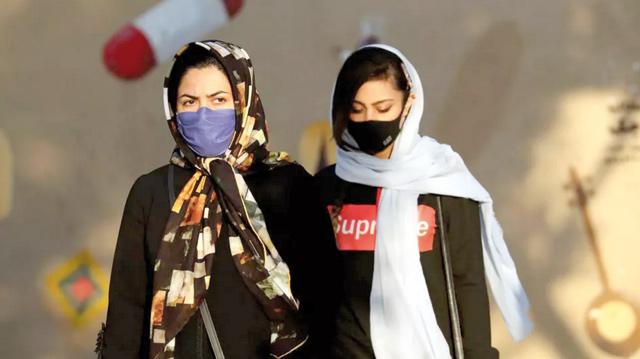- International News
- Sun-2020-11-01 | 03:10 pm

Nayrouz News Agency :
Iran announced on Saturday the expansion beyond Tehran of measures against COVID-19, amid growing calls for a full lockdown after the country posted a string of record highs in deaths and infections.
The measures would take effect on Wednesday and last for at least a week, Alireza Raisi, spokesman for Iran’s anti-virus taskforce, said in televised remarks.
They would force the closure of beauty salons, cafes, education centres, gyms, mosques, museums, swimming pools and theatres in 25 provincial capitals and 46 counties, Raisi said.
The measures are an extension of what had already been introduced in Tehran and 43 other counties in recent weeks.
Iran, the country worst-hit by the virus in the Middle East, has recorded several daily fatality and infection highs in recent days, with figures on the rise since September.
The latest record death toll of 415 was announced on Wednesday, with new infections reaching a high of 8,293 the next day.
On Saturday, Health Ministry spokeswoman Sima Sadat Lari said there had been another 386 deaths and 7,820 new cases in the past 24 hours.
She said it brought Iran’s total positive cases to 612,772 since its first cases were reported in February, out of which 34,864 have died.
The rising toll has brought a number of health experts and officials to call for a full lockdown in the capital as a minimum measure.
"The disease’s spread in the province and especially the city of Tehran is worse than what the government has revealed so far,” Etemad daily wrote on Saturday.
It pointed to a Thursday call by the representatives of Tehran for a two-week lockdown after the city’s virus chief painted a grim picture of the situation for its more than eight million residents.
The result of a poll by Hamshahri daily surveying 85 notable political, cultural and sport figures also showed more than half agreeing to a two-week to a month-long lockdown in Tehran.
A senior health official told Farhikhtegan newspaper on Saturday that daily fatalities could potentially reach 900 in coming days unless adequate measures were taken.
"The country or high-risk cities must be completely quarantined for two to three weeks,” said Alireza Naji, head of the virology department at Iran’s top respiratory diseases’ hospital of Masih Daneshvari.
Iran has not imposed a full lockdown since it was hit by COVID-19 in February, with President Hassan Rouhani arguing the country’s sanctions-hit economy cannot afford to be shut down for an extended period.













